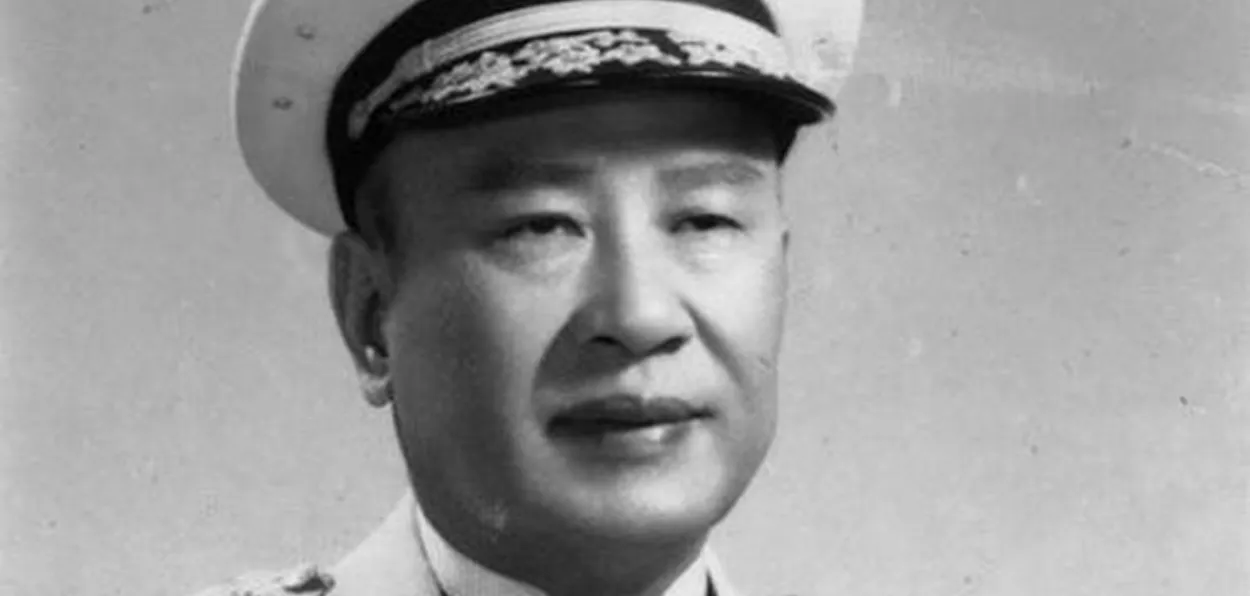
 Saquib Salim
Saquib Salim
“At a recent meeting in Chungking (Chongqing), Chinese Muslims decided to step into the League-Congress controversy in India. A written appeal, addressed to Mr. Mohammed Ali Jinnah, President of the Indian Muslim League, urging him to cooperate with the Indian National Congress, was drafted to be signed by General Omar Pai Chung-Hsi, China's No. 1 Mohammedan General and Deputy Chief of Staff of the Chinese Army.”
The above news appeared in Asia in August 1943, when the Muslim League-led movement for Pakistan was at its peak. Gen. Omar Pai Chung-hsi (or, Bai Chongxi) was the President of the Chinese Islamic National Salvation Federation, the largest representative body of Muslims in China. After World War II, he was appointed minister of national defense in China.
The ties between the Chinese nationalists and the Indian National Congress date back to the 1920s. In the 1930s Congress had sent its medical mission to China. Chinese delegations also visited India from time to time. The news that a few Indian Muslims were asking to divide the country came as a shock to Chinese Muslims as well.
A Chinese writer wrote, “Although the common Chinese Muslims may not know from Adam what that means, they would certainly shake their heads in disapproval at the idea of creating a separate Muslim State in India, which is what "Pakistan" in plain terms amounts to.”
Chinese Muslims considered themselves Chinese and Muslims at the same time. They could not believe that someone in India, or any other country, would behave any differently. It was said, “General Pai has on numerous occasions emphasized the idea that the Chinese Muslims are part and parcel of China — neither a distinct racial unit, nor even a political party, but a religious and cultural group with much to contribute to the general welfare. In politics, they believe: in the Three People’s Principles underlying Chinese democracy just like the rest of the Chinese people. The Chinese-Islamic National Salvation Federation has as its two-fold objective the salvation of the nation and the propagation of Islam, but for the present, the nation comes first. There can be no religious freedom to speak of when the freedom of the nation is not assured. The policy of the Federation, as General Pai conceives it, is opposed to that of the Indian Muslim League.”
Sir Zafrullah Khan, who later became the first foreign minister of Pakistan, was called upon by the Chinese-Islamic National Salvation Federation to explain the idea of Pakistan in front of Chinese Muslims in 1943. Zafarullah enthusiastically spoke in support of ‘Pakistan’ but only to get bombarded with questions from the Chinese leadership.
Jelaluddin Wank Zin-Shan, Isa Yusuf, Ibrahim Shah Kuo-chen, and other Chinese Muslim leaders who had visited India in the recent past blasted Zafarullah’s speech. They pointed out, “the sheer infeasibility of the idea of a separate Muslim State in India. Out of all the Provinces in India, it was pointed out, that the only two in which Muslims constitute the majority are Bengal and Punjab… These two provinces are separated by many States and provinces in which the Muslims are definite minorities. The “Pakistan” idea, all considerations of its religious and political justification aside, thus seems impracticable.”
An influential Chinese Muslim, Ali Yang Ching-Chih, wrote in an article for Ta Kung Pao (a Chinese daily) that Pakistan was a medieval geographical expression and Jinnah was the protege and scapegoat of those of the British Government who believed in keeping India divided.
In 1942, Othman K. H. Woo was sent to India by the federation to meet the Congress and Muslim League leadership. Woo reported that while the meeting with the Congress President, Maulana Abul Kalam Azad, was very cordial and satisfactory, Jinnah demeaned the Chinese Muslims by questioning their political coalition with the non-Muslim Chinese population.
READ MORE: Anwaruddin Choudhury: A bureaucrat turned crusader saving NE’s wildlife
The federation’s spokesperson answered Jinnah’s question about why co-operate with the Hans (a term used for Chinese people) with its manifesto after the conclusion of its second general conference. In this manifesto, “it was pointed out that throughout the 1,320 years since Islam was first introduced in China, the Chinese Muslims have in the main been accorded a fair treatment by the Chinese Government. T
he policy of the Manchu Emperors in creating friction between the Muslims and the Hans failed to undermine the love of the Muslims for their fatherland. The Chinese Muslims are ‘essentially a religious group and as such are not necessarily interested in politics, the manifesto continued. Get-thee-into-government is no password among them.”
